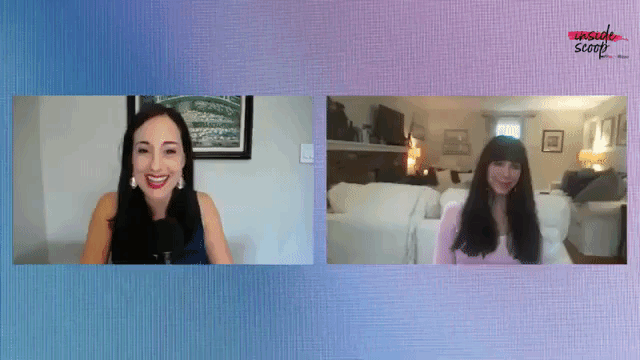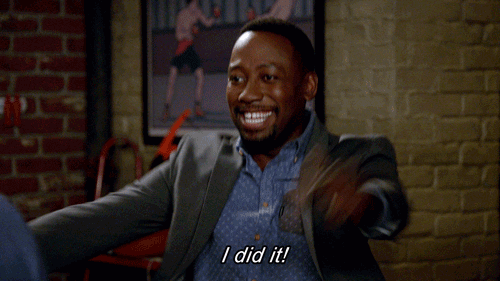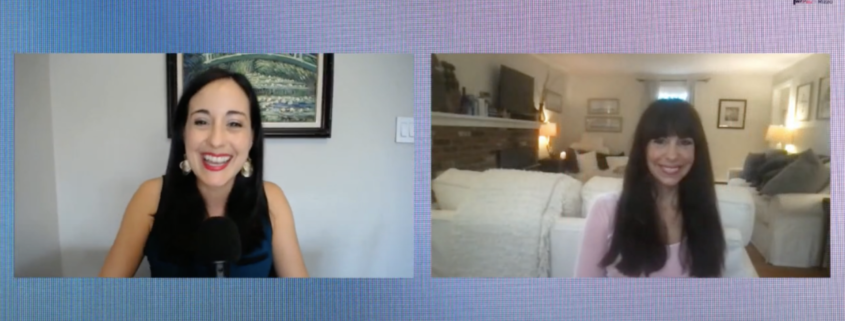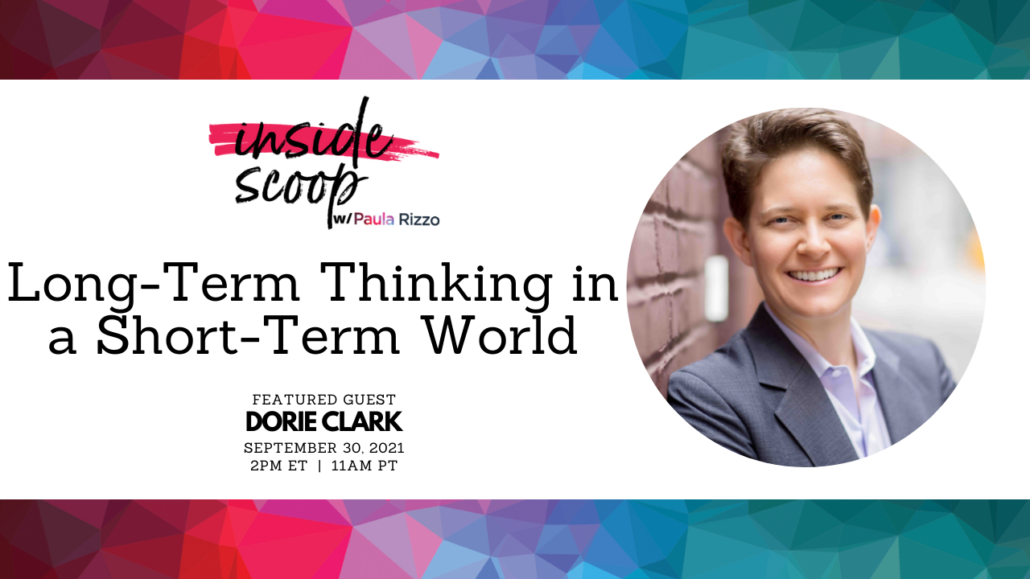Finding Time For Your Creative Projects
___
BONUS FREEBIE: Want even more ways to stay organized, productive and less stressed? Click here to get access to my List-Making Starter Kit. It will boost your efficiency and get you back to doing more of the things you love.
___
Let me guess, there’s been a time where you’ve said, “Oh, I would love to…[fill in the blank with an exciting creative project here].”
You thought about it. But you never actually did it.
Probably because it’s hard to carve out time for yourself to be creative!
I’ve written two books so I know it’s difficult. I had to be very regimented, create accountability and have a really good roadmap with coaches along the way to get it done.
On the most recent episode of my live-streaming show Inside Scoop, I chatted with author, editor, publishing consultant, book shaman, and writing coach Suzanne Kingsbury about “Carving Out Time to Be Creative.”
Because it’s not enough to just start your creative project, we want you to finish as well.
Here are six tips on starting and finishing your next creative endeavor.

(While many of these tips specifically reference writing books, they can be adjusted and applied to any creative project!)
1) Instead of being afraid, make it fun!
Creative projects can be scary. And sometimes that gets in the way of getting them done. The reason resistance can be so high to big projects is that they can shift your life inexorably. And there’s a part of the self that’s afraid of that.
Give yourself a little compassion. Suzanne reminds us that, “it’s okay if you haven’t started yet. It’s very normal to have those feelings of resistance.” But decide you’re ready for that kind of change.
Try not to focus on that fear, or the fear that your project is going to take tons of discipline and willpower to finish.
Focus on the fun! You can’t finish your passion project without the passion. It has to be fun and exciting for you to make it all the way to the finish line!
And speaking of things that make the creative process scary…
2) Silence your inner critic by working while sleepy.
“Your inner critic runs on adrenalized energy,” Suzanne explains. So one way to beat that critic is to work when you’re relaxed and maybe a little sleepy. Because then you’ll be too tired to judge.

Maybe that’s really early in the morning. Or late at night. Or after a glass of wine. Whatever method you choose to relax into creating, it can lull you into a place that makes it easier for your muse to appear.
3) Find a project that’s really exciting to you.
Thinking about what you really want to do all day instead of your day job. Not sure?
“You’ll know when what you’re doing makes you take that little moment and say Oh my God, I created it,” Suzanne explains. So then the next night you want to make another one, and another one, until you have a whole portfolio.
Suzanne says, “For writers, it’s really like a story that they’ve always wanted to tell, even a scene, or an idea that they wanna flush out on the page.” It doesn’t need to be a complete idea. It just needs to be enough to generate excitement to get you started and keep you going.
It can be really fun to let go. To just get started and see what happens. This method takes a lot of bravery and courage (and isn’t for amateur writers.) It’s allowing yourself to kind of go with the creative urge rather than trying to strangle it and control it.
___
Interested in creating more boundaries so you can save your time for projects that are really important to you? Join me for my LinkedIn Learning Course “How to Set Boundaries and Protect Your Time.”
4) Find your creative community.
Finding a creative community is great for that. And Suzanne has two wonderful programs that foster communities for writers.
The first is her Gateless Writing Retreats. I’ve personally attended two and it’s where I started writing my novel. More on that soon!
Suzanne has a very specific way of giving feedback. It’s called The Gateless Method and it’s all about looking at a writer’s strengths. You talk about what’s really working on the page and then you build up those strengths.
She explains that hearing about what’s working “actually gives you a tremendous amount of motivation to keep going. That doesn’t mean you don’t need craft. And it doesn’t mean you don’t need a network.” She believes that giving critique without breaking a writer down moves them towards finishing a book and selling it much faster.
The second program (which I have also been a part of) is called The Writer’s Academy.
The Academy is a writers’ collective and elevated experience that helps you keep going. It’s a ten-week program that meets weekly. You’re paired with other writers who are also working on projects at all stages. It includes seminars, and gives you access to agent’s names, how to do queries, how to write proposals, how to write scenes, etc.
Everyone is welcome and applications are open right now! To apply, send an email of intent that explains what you’re working on and why you want to participate in The Academy. Then attach up to 10 pages of your work. And since you’re one of my readers, you are automatically eligible for $2000 off tuition! Just put “Paula’s People” in the subject line when sending your application email to gatelessacademy@gmail.com.
5) Figure out how you work best.
Do you work in spurts? Or binges? It’s important to figure out what works for you.
As I’ve written about many times, we’re not going to tell you to become a morning person if you’re not a morning person and say, “That is the best time to write.” Or, “You have to write after lunch.” It depends on you. Your productivity style. And what really gets you going.
There’s no right way to write a book. Suzanne says, “a book can get done in an hour a week.” And you can have a whole book by the end of the year. Or you can haul up in a hotel room and write in intensive weekends. She says the best bet is, “finding out what works with your schedule, with your life, with who you are, and with what feels good.”
Don’t beat yourself up. It’s okay if your process looks different than the creatives around you. This is about you and your book and what works for you.
___
If you’ve found yourself prioritizing smaller wins over your long term goals, join me for the next episode of my live-streaming show, Inside Scoop, with special guest Dorie Clark (Top 50 business thinkers in the world by Thinkers50, author, keynote speaker, and teacher for Duke University’s Fuqua School of Business) to discuss “Long-Term Thinking in a Short-Term World.”
___
6) Let go of Time Constraints to Set Realistic Goals.
How long your project takes will not only depend on your schedule, but also on what your project is.
My 15,000 word book (Listful Living) took less time than my fiction book is taking because they’re different kinds of projects. And I’ve had to set my timelines and deadlines accordingly. Expecting to get something done in unrealistic time frames, will only bring disappointment. This can also potentially de-motivate you, making it harder to complete your project.
Suzanne suggests committing to your project rather than how long it will take. She tells all her writers, “One day you’re going to wake up and your book is going to be finished. If you just follow it, it will finish itself.”
Use these tips to stop saying, “I’ll start tomorrow.” Start today. That’ll get you one day closer to saying, “I did it!”

___
BONUS FREEBIE: Want even more ways to stay organized, productive and less stressed? Click here to get access to my List-Making Starter Kit. It will boost your efficiency and get you back to doing more of the things you love.
___







Leave a Reply
Want to join the discussion?Feel free to contribute!